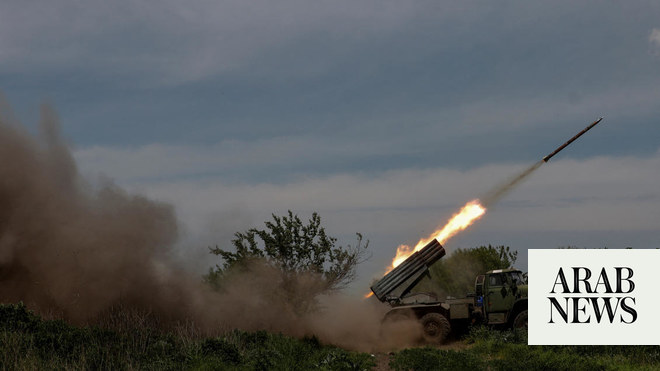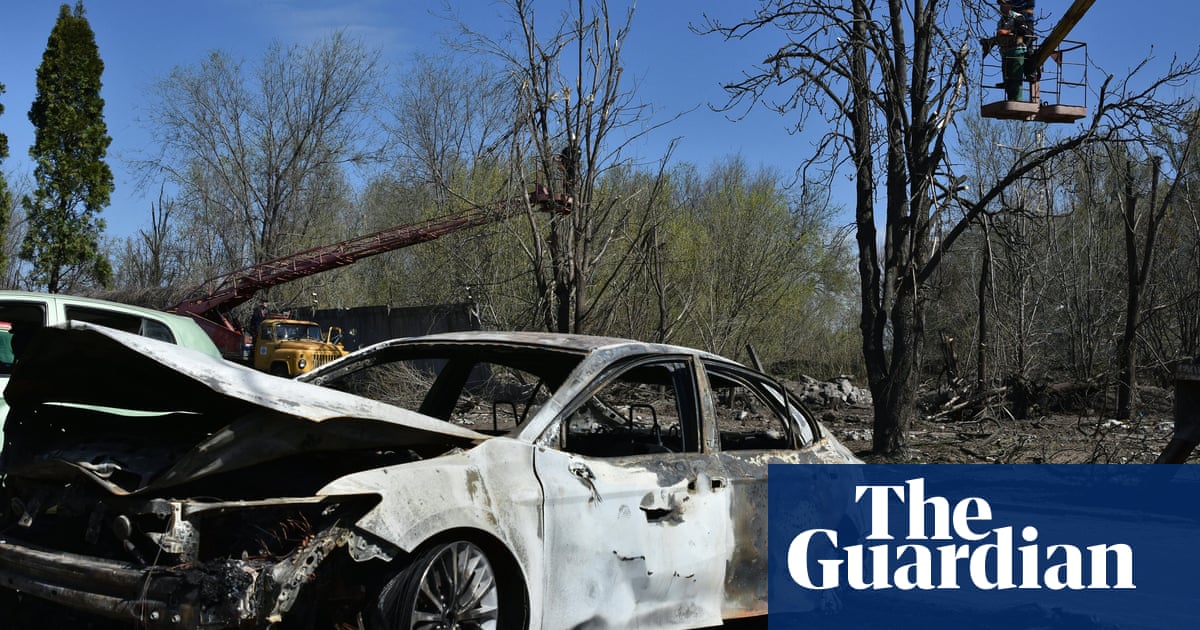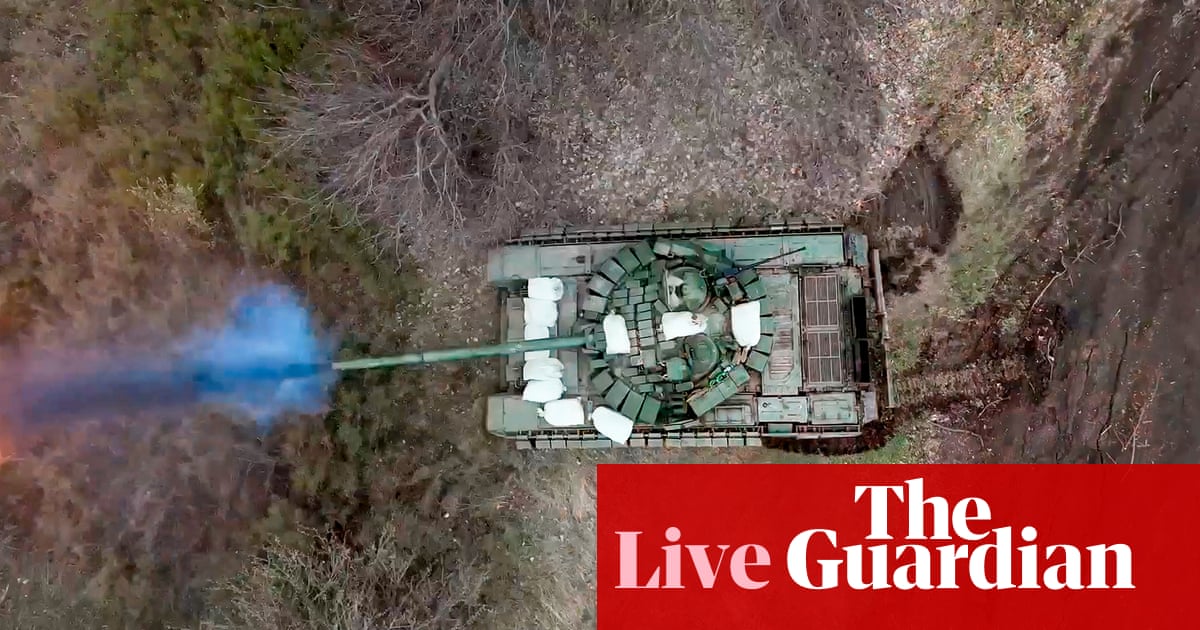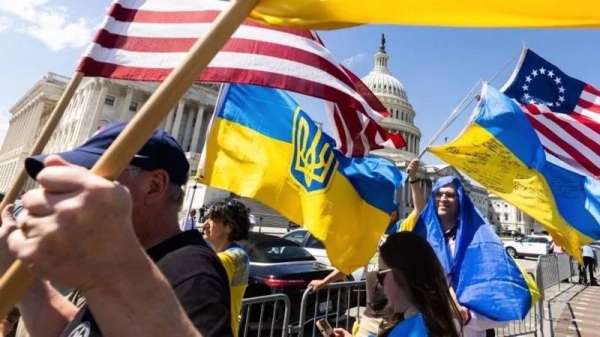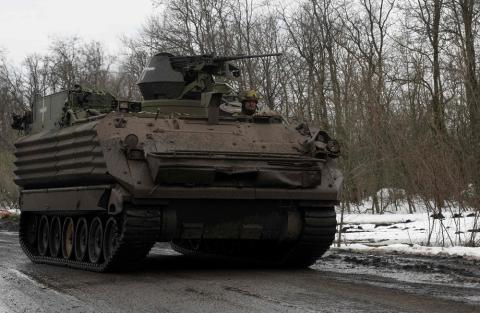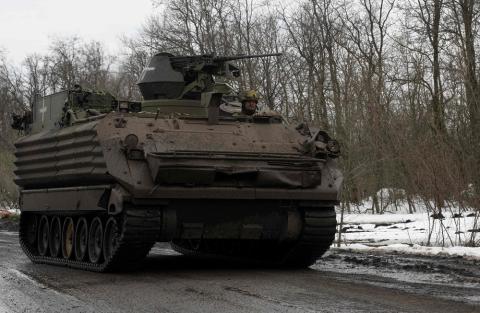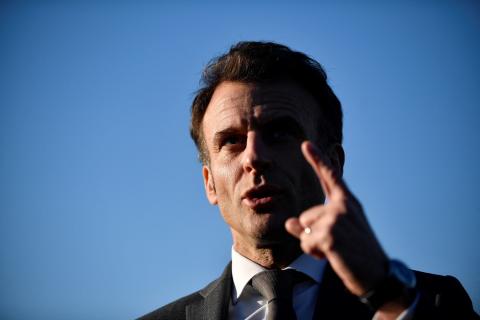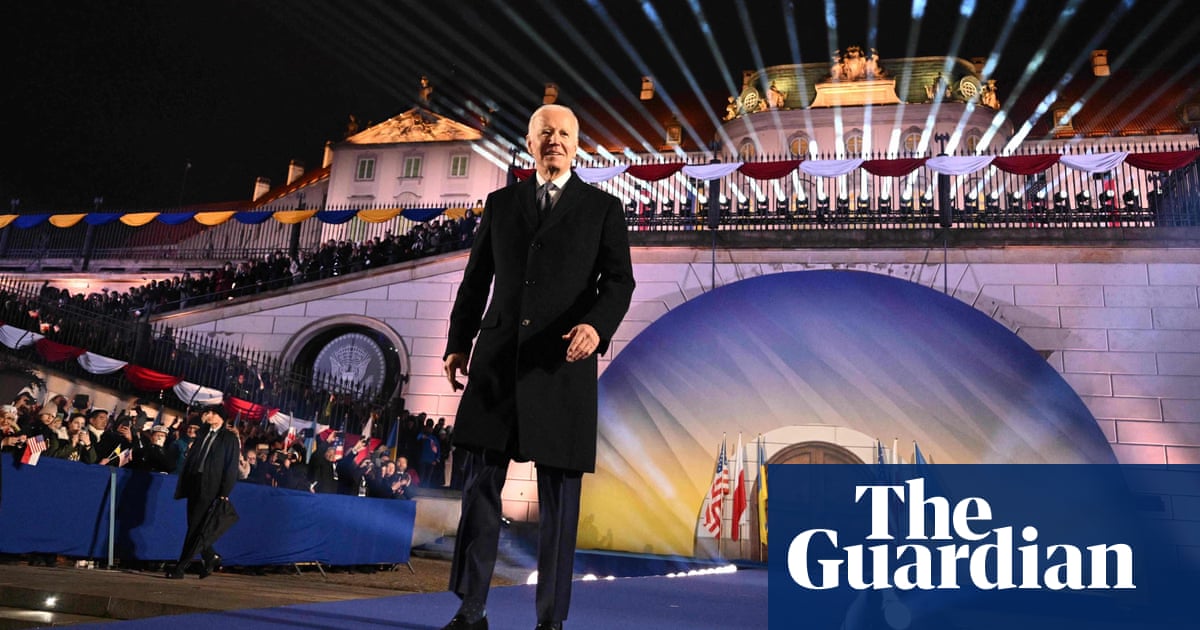
Joe Biden has claimed Vladimir Putin’s year of war against Ukraine has left behind “burned-out tanks and Russian forces in disarray” but he also warned of “very bitter days” ahead in the defence of democracy in eastern Europe.
Biden issued a rallying cry in a speech to mark the first anniversary of the full-scale invasion, addressing a crowd of 30,000, mostly Poles and Ukrainians, in front of the arches below Warsaw’s royal castleon Tuesday evening.
He was speaking after Putin had delivered a speech of his own, in which he blamed the west for the war and announced the withdrawal of Russian participation in the 2010 New Start treaty, the last remaining nuclear arms control agreement between the US and Russia.
Biden did not respond to the announcement or mention Putin’s speech in his own address. The White House was adamant the Russian leader had changed the date of his speech to coincide with Biden’s trip to eastern Europe. However, the US president did ridicule Putin for the failure of his ambitions to conquer Ukraine in a few days last February.
“Instead of an easy victory he predicted, Putin left burned-out tanks and Russian forces in disarray,” Biden said.
The US president sought to paint a broader picture of the essential battle between democracies and authoritarian regimes, a central theme of his foreign policy. It was a battle on the way to being won in Ukraine, he said, thanks to Ukrainian courage and western solidarity, but Biden made clear the struggle was not over.
“There will continue to be hard and very bitter days, victories and tragedies,” he said. “But Ukraine is steeled for the fight ahead and the United States, together with our allies and partners, are going to continue to have Ukraine’s back as it defends itself.”
The US national security adviser, Jake Sullivan, had promised the speech would be “vintage Biden” because it encapsulated the theme of an epoque-defining struggle between freedom and dictatorship that has been common to his time as senator, vice-president and president.
In his own speech, Putin also stuck to familiar themes, in his case the claim that it was somehow Russia under threat from its enemies, justifying the continuation of the war in Ukraine, and the reference to Russia’s nuclear weapons as an apparent deterrent against further western support for Kyiv.
“They want to inflict a strategic defeat on us and claim our nuclear facilities,” Putin said, without specifying what facilities he believed were under threat. As a result, he announced the suspension of Russian participation in the New Start treaty.
It was not immediately clear what such a suspension would mean, but it did not appear to imply that Russia would no longer abide by the treaty’s limits on nuclear arms, most importantly a ceiling of 1,550 deployed strategic warheads each. Russia has already ceased mutual weapons inspections and participation in a bilateral consultative commission set up to regulate the treaty’s implementation.
Experts suggested Putin could stop sharing data, such as notifications on the planned movements of nuclear weapons, in which case the New Start treaty would be severely weakened.
“This is a desperate political move by Putin to stoke fear and undermine support for Ukraine,” said Derek Johnson, a leader of the Global Zero movement for the elimination of nuclear weapons. “There’s no need for the US to respond in kind or adjust its nuclear posture, and any move to do so only plays into Putin’s hands.”
Although Biden did not directly respond to Putin in his speech, its staging was in striking contrast to the Russian leader’s formal appearance at the Gostiny Dvor conference centre in Moscow.
Putin had delivered his nearly two-hour address to neat ranks of sombre officials, and devoted most of his time to Russian domestic concerns. Biden spoke for just over 20 minutes, and the speech was entirely about the war in Ukraine and its long-term implications. The gardens below the castle were filled with cheering and flag-waving crowds, under a giant billboard with the US, Polish and Ukrainian flags juxtaposed. Biden walked to and from the lectern to the sound of pop music, and was surrounded after his speech by children.
Like Biden’s surprise trip to Kyiv the previous day, the Warsaw event was designed to project an image of boldness and vigour and combat his portrayal by his adversaries in Moscow and in domestic politics as frail and ineffectual. The president made explicit reference to those expectations in his speech.
“[Putin] thought autocrats like himself were tough and leaders of democracies were soft, and then he met the iron will of America and nations everywhere who refuse to accept a world governed by fear and force,” he said.
While Biden’s speech was a rallying cry for democracies in general, it was also a pledge of solidarity with Poland, which has emerged as a crucial ally of Washington and Kyiv over the past 12 months.
He called on the Poles in the crowd to look at each other and acknowledge the scale of their achievement in hosting more than 1.5 million refugees.
“This is a critical, critical, critical, critical relationship for the United States,” Biden said earlier in a meeting with his Polish counterpart, Andrzej Duda. “And we thank you for all the cooperation and help.”




